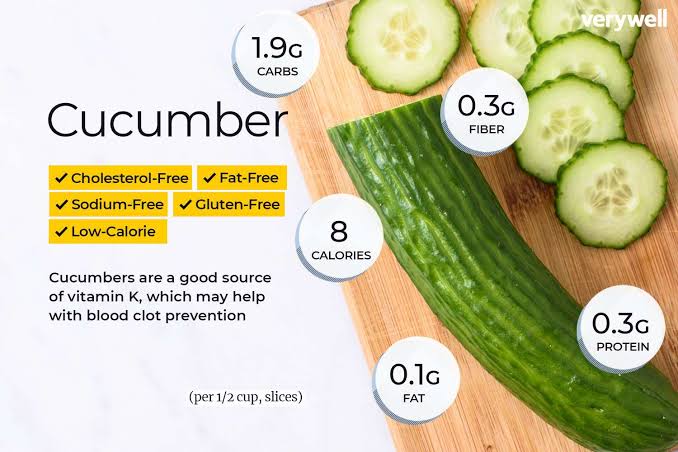Cucumber often gets labeled as “just water,” but there’s more to this crunchy veggie than meets the eye. While it’s true that cucumbers are made up of about 95–96% water, they bring more to the table than simple hydration.
Key Highlights:
-
Cucumbers are extremely hydrating, making them a great choice for hot weather, post-exercise recovery, or anyone who struggles to drink enough water.
-
Though low in calories (about 15–16 per 100 grams), cucumbers contain small but useful amounts of vitamins and minerals. These include vitamin K (important for bone health), vitamin C (an antioxidant that supports immunity and skin), potassium, magnesium, and a bit of fiber—especially if you eat the skin.
-
Cucumber skin also contains antioxidants like flavonoids and tannins, which help fight inflammation and protect your cells from damage.
-
The fiber in cucumbers, mostly found in the peel, helps with digestion and regular bowel movements.
Some studies suggest cucumbers may help regulate blood sugar and support heart health, thanks to their fiber, potassium, and antioxidant content.
While cucumbers aren’t as nutrient-dense as leafy greens or cruciferous veggies, they’re still a healthy addition to your diet, especially if you eat them with the skin on.
They’re versatile—enjoy them raw, in salads, as a snack, or even in detox water with mint.
So, while cucumbers are mostly water, they do offer a refreshing mix of nutrients and health benefits, making them much more than just a filler on your plate.
Source: Medical News Today, Times of India, Healthline
